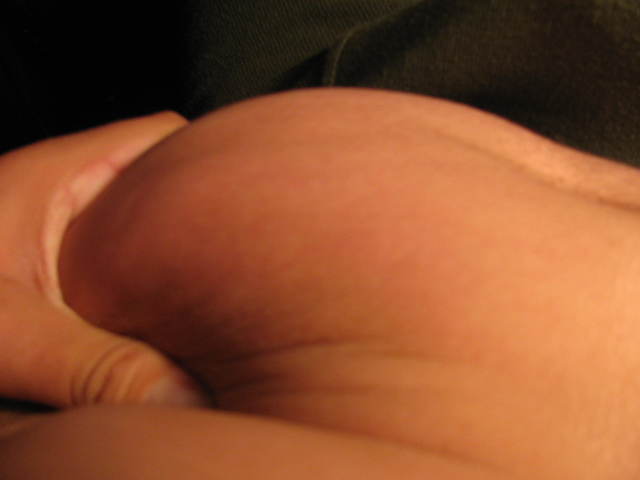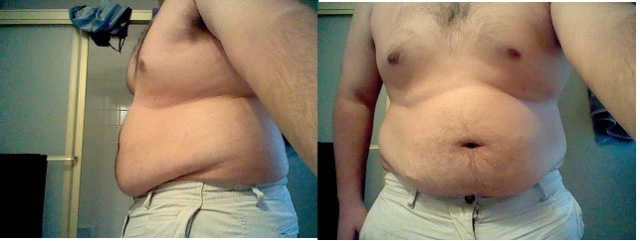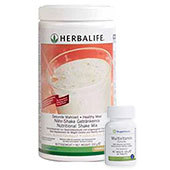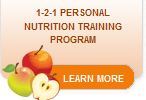Appetite reduction
Question
I have been on a successful diet and exercise program, but have stoped losing weight. The reason is that my appitite seems to have turned on to full ahead. Any tips on reducing my appitite, non prescription, would be appreciated. Also I have noticed that eating seems to increase my appitite. thanks
Sorry Ernie. Wish I could tell you of a simple solution like a pill that would help with the appetite.There isn抰 anything on the market that is proven to be safe or effective. But here are some tips taken from my blog. I hope that this will help you.
http://blog.myactivenutrition.com/2010/07/controlling-your-appetite/
The amount we eat every day is a factor not only of our genetics, the strength of our willpower or our metabolic rate. A lot more is at work, such as:
Emotional eating. Sometimes the strongest cravings for food happen when you're at your weakest point emotionally. You may get hungry and eat for comfort ?consciously or unconsciously ?when you're facing a difficult problem, stress or just looking to keep yourself occupied.
Eating too few calories. If we have reduced the amount of calories that our bodies needs, especially drastically, we will experience hunger. So calculate the amount of calories that your body needs daily to maintain a healthy weight. If you are trying to lose weight, decrease that amount by 500-1000 calories a day. In general, do not go below 1200 calories per day for women or 1500 calories per day for men.
Time of day. Each of us gets into routines that psychologically "tell" our bodies we need food at the same time each day. Part of the reason you're hungry at noon is because that's the time you've eaten for the previous 200 days.
Sight. MRI brain scans show that visual perception of food matters a great deal. The brain patterns of people who see photos of foods they like and foods they dislike are very different. The body anticipates when food is about to enter the system.
Variety. It's no lie that "variety is the spice of life." We naturally like to have many different stimulations during a meal, which is why many of us, even after eating a large meal, still make room for dessert. And, we tend to underestimate portions when there is variety. This causes people to take larger servings when there is variety, yet they don't realize they have done so.
Smell. Scent is one of the key ways we cue our bodies that food is near. Our sense of smell provokes the secretion of insulin, which arouses hunger.
Alcohol. Drinking seems to stimulate more eating, perhaps because it reduces one抯 judgment. Most people who are on a diet will say it's a lot harder to push themselves away from the table if they've been drinking.
Temperature. As it gets colder, people eat more. Your metabolism drops when it抯 time to eat, and eating warms you up. Being warm makes you feel full.
Refined carbohydrates. When we eat refined carbs, such as white bread, we get hungry again relatively quickly. This is because these foods lower blood sugar, and when our blood sugar is crashing, we're going to be a lot more interested in food in general. On the other hand, unrefined foods, especially those that are high in fiber, stimulate appetite-suppressing hormones and make you feel full
Fatty Junk food. Junk food makes you eat more. Research tells us that fat from certain foods including ice cream and burgers goes straight to the brain and tells you to eat more. It triggers messages that are sent to the body's cells, warning them to ignore appetite-suppressing hormones that regulate our weight. The effect can last for a few days sabotaging efforts to get back to a healthy diet afterwards.
So what can we do to help control our appetite?
? Avoid fatty junk foods.
? Brush your teeth. The flavor change helps you resist eating more.
? Eat on a regular basis. Eating breakfast and regularly scheduled meals keeps hormone levels steady and suppresses hunger pangs.
? Slow down your eating. It takes a while for the brain to realize that the stomach is stretching. Eating slowly gives the brain time to catch on.
? Include foods that are high in fiber and protein since they help decrease appetite by making you feel full longer. Start your meals with a big salad for example. Unrefined foods, especially those that are high in fiber, stimulate appetite-suppressing hormones and make you feel full.
? Choose high-volume, low calorie foods so you can eat more, feel fuller, and yet take in fewer calories.
? Slow down your eating. It takes a while for the brain to realize that the stomach is stretching. Eating slowly gives the brain time to catch on.
? To help stop emotional eating, try these tips:
? If stress contributes to your emotional eating, try a stress management technique, such as yoga, meditation or relaxation.
Ask yourself: Is your hunger physical or emotional? If you ate just a few hours ago and don't have a rumbling stomach, you're probably not really hungry. Give the craving a little time to pass.
Keep a food diary. Write down what you eat, how much you eat, when you eat, how you're feeling when you eat and how hungry you are. Over time, you may see patterns emerge that reveal the connection between mood and food.
Instead of snacking when you're not truly hungry, distract yourself. Take a walk, lift weights, watch a movie, play with your pet, write a letter, paint your nails, work on your hobby, listen to music, read, surf the Internet or call a friend.
Take away temptation. Don't keep supplies of comfort foods in your home if they're hard for you to resist. And if you feel angry or blue, postpone your trip to the grocery store until you're sure that you have your emotions in check.
Don't deprive yourself. Let yourself enjoy an occasional treat and get plenty of variety to help curb cravings.
Eat healthy snacks. If you feel the urge to eat between meals, choose a low-fat, low-calorie snack, such as fresh fruit, vegetables with fat-free dip, or unbuttered popcorn. Or try low-fat, lower calorie versions of your favorite foods to see if they satisfy your craving.
If you're constantly tired, you might snack to try to give yourself an energy boost. Take a nap or go to bed earlier instead so you are assured of getting the sleep you need.
If you've tried these options but you still can't get control of your emotional eating, consider therapy. Therapy can help you understand the motivations behind your emotional eating and help you learn new coping skills.
- Prev:TREADMILL EXERCISE
- Next:buldges of thigh n belly
Related Articles
-
High Protein Diet and Energy
QuestionI am on a weight lifting regiment. I go to work at 6 am a
-
nutritious vegetables
QuestionI know the healthiest and best way to get all the nutriti
-
Big bellies
QuestionI am trying to lose some weight. Id like to lose ab
-
eating healthy...
QuestionHi, To give some background, I am 36 yrs old, 511 and wei
-
Losing a lot of weight
QuestionRichard, Im writing to you because I feel like I have SO
-
OBESTY
QuestionI AM 36 YRS OLD, WITH 54 HT, AND A BMI INDEX NO. OF 32 WH




